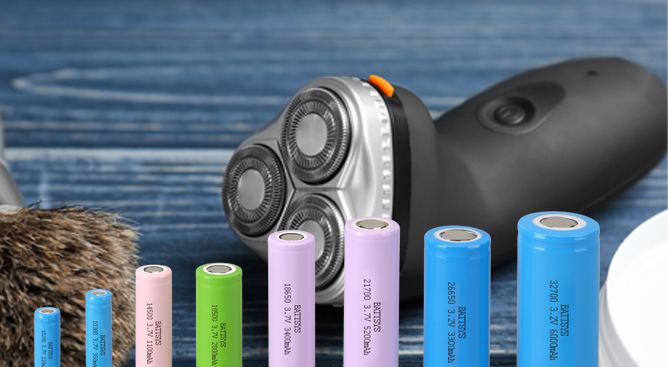Which is better, polymer or cylindrical 18650 battery cells.
This type of lithium-ion battery cell refers to a rechargeable battery with a diameter of 18mm and a total length of 65mm. 0 indicates a cylindrical rechargeable battery. The technical aspect of this technology is relatively complete, with a stable battery structure, high specific capacity, and outstanding comprehensive performance. In addition, due to its small size, it can be applied to several industries and has key practical significance. The defect depends on its safety factor not being as good as that of polymer lithium-ion batteries. The cycling frequency of lithium battery cells is relatively low, only about 300 times.
18650 battery cells are usually cylindrical in shape and are typically packaged in aluminum shells. The key depends on the fact that the lithium-ion battery of 18650 is mainly liquid, just like a water cup filled with water, so 18650 is only cylindrical.
However, the risk source of 18650 is still very high, mainly due to the fact that the packaging design of 18650 products generally uses steel casings. If the manufacturer encounters uncontrollable problems during the processing, resulting in poor product quality, it is very easy to encounter explosion incidents.

Polymer battery cell
Unlike traditional lithium-ion batteries, the production process of polymer cells is different. Lithium ion batteries are coiled together and have a relatively soft capacity. The polymer is a layered structure with a relatively hard volume. Polymer and lithium-ion batteries with the same volume have a large polymer volume, which can reach up to 30%. Good safety factor and low risk of explosion. Add a new usage period. The frequency of battery charging and discharging exceeds 500 times. Defects depend on cost increases, and polymer battery cells of the same volume are at least 100% more expensive than 18650 lithium-ion battery cells. The major safety hazards of lithium battery cells are liquid leakage and short circuit faults, which may cause difficulty in starting the package. The most terrifying situation is that it may cause ignition and result in ignition.
Which is better, 18650 battery cells or lithium
polymer battery cells?
At the beginning, 18650 lithium battery cells and lithium polymer battery cells were made from different raw materials. 18650 lithium battery cells were selected from various raw materials such as lithium iron phosphate batteries, lithium manganese oxide batteries, and ternary lithium, while lithium polymer battery cells were generally made from a mixture of various raw materials such as lithium cobalt oxide batteries, lithium manganese oxide batteries, and ternary lithium. The former type of raw material has high purity and purity, while the latter type of raw material has extremely high composition.
The safety factor difference between these two raw materials is very large. The key reason for 18650 lithium battery cells depends on the product packaging design of the aluminum shell, which makes them very prone to explosion incidents when the quality of the manufactured products is not up to standard. But beginners in assembly may not be able to distinguish whether the 18650 lithium battery cells they buy and sell are of good product quality. As for beginners, the difficulty of getting started with 18650 lithium battery cells is relatively high. How can we strongly recommend it? Generally speaking, for the assembly of lithium-ion batteries, beginners are interested in assembling lithium-ion battery packs. The best choice for beginners is lithium polymer battery cells, which have high efficiency, energy, and safety factors. The key is that high safety factors are the most important. Only by fundamentally protecting one's own human safety can one do what they want.
